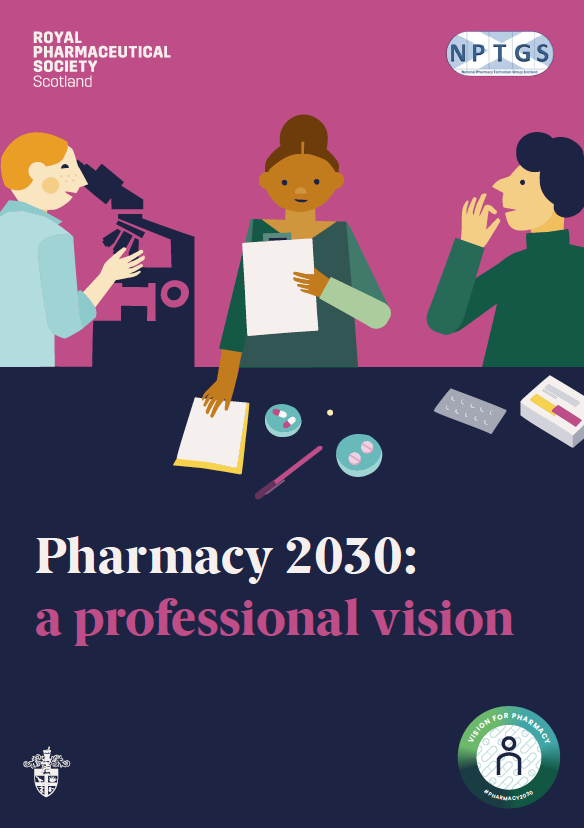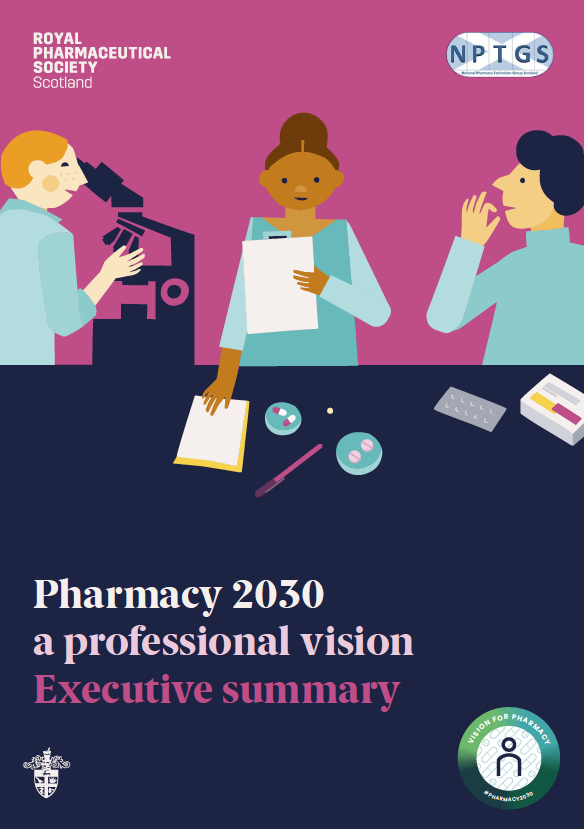The Royal Pharmaceutical Society (RPS) has today published Pharmacy 2030, which outlines an exciting new vision for the future of pharmacy in Scotland.
It describes a future in which pharmacy teams will work together, using their expertise to make the best use of medicines. They will take a person-centred approach, providing care holistically rather than by clinical condition.
Importantly, the vision was co-produced with pharmacists and pharmacy technicians working in all healthcare settings across Scotland, including hospitals, community pharmacy and GP practices, as well as in non-patient facing roles. It is jointly published by RPS Scotland and the National Pharmacy Technician Group Scotland (NPTGS). A key part of the vision describes how achieving the right skill mix in pharmacy teams through robust workforce planning will be essential to both increasing capacity of pharmacy teams and improving patient experience.
Clare Morrison, Director for Scotland at RPS, said: “In our vision, pharmacists will be recognised as medicines experts who take leadership of prescribing in all care settings and optimise therapeutic outcomes for patients. This means prescribing, monitoring, reviewing, adjusting and stopping medicines, underpinned by empowering patients to make shared decisions.”
Melanie Bryan, Chair of NPTGS, said: “The vision sets out that in 2030, pharmacy technicians will lead medicines management processes, both in technical roles focused on safe and efficient supply of medicines, and in patient-focused roles to support patients’ use of medicines.”
RPS will be using the vision to communicate with partners across NHS, Scottish Government and Holyrood about advances that are needed to maximise the potential of pharmacy across the health and social care system. One specific change that RPS is calling for is the introduction of a single shared electronic patient record across all health and care services, which would release clinicians’ capacity, improve safety and enable the provision of better care for patients. The vision also outlines that most patient-facing pharmacists will be independent prescribers by 2030, which would not only be convenient for patients, but would also increase much needed capacity in the NHS.
Commenting on the publication, Andrew Carruthers, Chair of the Scottish Pharmacy Board, said: “We are really excited to be publishing Pharmacy 2030 today. Pharmacy teams already make a huge contribution to people every day, and a spotlight was shone on their vital work during the pandemic. However, we also know that pharmacy has the potential to achieve so much more, and publishing Pharmacy 2030 is the first step on our journey to achieving this. By working with partners across health and social care, we will ensure pharmacy continues to deliver improved health outcomes for people, across all care settings, long into the future.”
The full vision and executive summary is attached, and can also be accessed from Wednesday 2 February at: The full vision and executive summary is attached, and can also be accessed from Wednesday 2 February at: https://www.rpharms.com/




